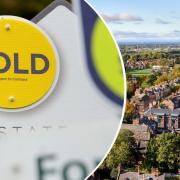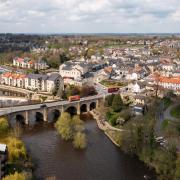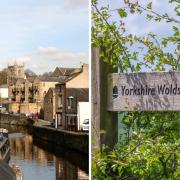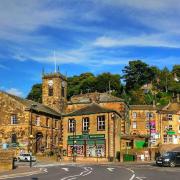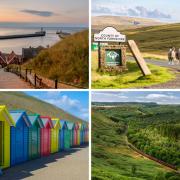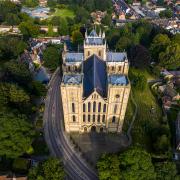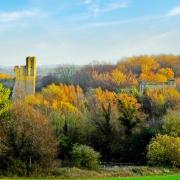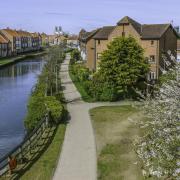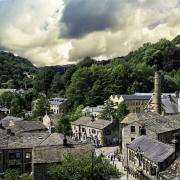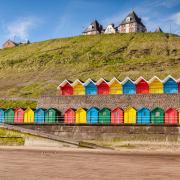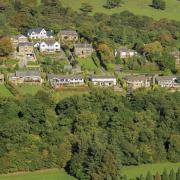Leeds has submitted its first stage bid to become European Capital of Culture 2023. If successful, it could be a transformative moment for the city, reports Tony Greenway
Creatively speaking, Leeds has always been something of a peach. For a start, it’s home to the West Yorkshire Playhouse, the North’s flagship theatre, and the internationally recognised opera company, Opera North. Then there’s the Northern Ballet, one of the world’s greatest ballet companies; the iconic City Varieties Music Hall; myriad innovative arts organisations such as Phoenix Dance, East Street Arts and Red Ladder and fascinating museums. The city has an incredible cultural heritage, too, giving the world Alan Bennett, Peter O’Toole, Malcolm McDowell, Keith Waterhouse, Helen Fielding, Kay Mellor, Damien Hirst and – oh yes – Ernie Wise.
And that’s just scratching the surface.
So why is there this nagging feeling, outside of Yorkshire at any rate, that Leeds is punching below its creative weight? The cultural noise the city is making should be deafening but it just doesn’t seem to be cutting through on a national level in any meaningful way.
Councillor Judith Blake, leader of Leeds City Council and executive member for economy and culture, thinks it might be because the word ‘Leeds’ doesn’t figure in the names of some of the leading arts organisations that are based here. ‘For example, it’s Northern Ballet, not Leeds Ballet,’ she says. ‘Same with West Yorkshire Playhouse and Opera North. There’s a feeling that we haven’t got across what an incredible place Leeds is, so we’ve been on a journey to promote the city wherever we can and tell people about the great, innovative, creative work that’s done here.’

A milestone on that journey was reached on October 27th, when Leeds submitted its first stage bid to become European Capital of Culture 2023. The last UK cities to host the European Capital of Culture year were Liverpool in 2008 and Glasgow in 1990 – and both had their reputations revolutionised by the accolade. Now Leeds is hoping to emulate their success.
In 2015, when Leeds City Council’s executive board approved the recommendation to make the bid, they did so on the condition that it would benefit the city as a whole, not just its glitzy, well-off centre. ‘We’ve recognised the extraordinary impact that the European Capital of Culture title had on Liverpool and Glasgow,’ says Blake.
‘Leeds is one of the most diverse cities in the UK with 140 different ethnic groups and 170 different languages; and because we’re a big metropolitan area we’re a city of extremes. We have both serious inner city deprivation and great affluence, so we would relish the opportunity to pull the whole city together to celebrate our culture.’
But, she says, this isn’t about showing off Leeds’s cultural gems to the rest of the UK. It’s about expanding on the city’s creativity, so that its diverse communities feel included as Leeds moves into the future.

‘We firmly believe that a successful bid will create a lasting legacy,’ says Sharon Watson, chair of the Leeds 2023 independent steering group. ‘Not only by implementing positive change by bringing these communities together and celebrating our diversity but also by attracting national and international funding and events to the city, providing a step change in tourism and a catalyst for growth and development.’
Big businesses have backed the bid, including Yorkshire Bank, Yorkshire Building Society and Yorkshire Water; and various Leeds stars have endorsed it, too, including Kaiser Chiefs and Corrine Bailey Rae. ‘As someone who grew up in Leeds, I know that culture and diversity are in the city’s DNA,’ said Bailey Rae. ‘To see local communities at home being given the opportunity to shine on such a big stage is something that’s very close to my heart.’
To underline the city’s creativity, a short film was released in September called I am a Spark, with actor David-O delivering a monologue about the city’s ‘culture and can-do attitude’.
So, this month, when the shortlist is announced, it’s hoped that Leeds will be on it.

If you think titles like European Capital of Culture are just symbolic and don’t make any real impact, look at the success of Hull and how fired up it’s become since winning UK City of Culture 2017.
‘The link between culture and economic success is very well documented,’ says Blake. ‘So becoming European Capital of Culture is about driving the city forward and making sure we’re an attractive place for businesses to locate. There’s a sense that London is overheating and people want to move out of the capital. We want to tell those who don’t know about Leeds what a fabulous place it is, with a very high quality of life for a lot of people within a rural and urban mix.’
When they get here, new visitors (or ones that haven’t been here for a while) might be surprised to discover that Leeds has spent the last 20-or-so years flowering into a shopping nirvana, with big names and glossy malls that challenge Manchester for retail supremacy.
Recently, the city nabbed third place on Venuescore 2017, a survey from the Javelin Group which ranks the UK’s top retail centres. True, Manchester took the number one spot (excluding London), but Leeds is nipping at its heels, particularly with the opening of the Victoria Gate development late last year.
‘We’ve got so much to offer in a compact, pedestrianised city centre,’ says Blake. ‘We have our fabulous Victorian arcades; plus there’s Trinity – and what a fantastic achievement that has been, bringing all the benefits of an out-of-town shopping development and weaving them into the streets of Leeds. It’s such a rich experience.’
Don’t forget Kirkgate Market, one of the largest indoor markets in Europe, and The Light; or Leeds’s independent shopping names (take a trip to the Corn Exchange to check out some of those).
‘I heard a story this morning about someone who came back to Leeds for the first time in 20 years,’ says Blake. ‘She was blown away and couldn’t believe the transformation. It really does go back to that very brave decision in the 1990s to take the traffic out of Briggate. Now if you travel into Leeds on a weekend or in the run-up to Christmas for late-night shopping, the sheer volume of shoppers coming into Leeds is incredible.’
This month, though, the city’s eyes will be on the European Capital of Culture bid. So what’s the most impressive part of the Leeds cultural scene in Blake’s view? ‘I’d say it’s the potential for the people of the city to engage with creative organisations,’ she says, pointing to the West Yorkshire Playhouse’s community work and Opera North’s In Harmony in-school education programme. ‘I think that’s a stand-out strength for Leeds and a really positive reflection of how we can bring the highest quality art, in all its different forms, within reach of every single person in the city.’




